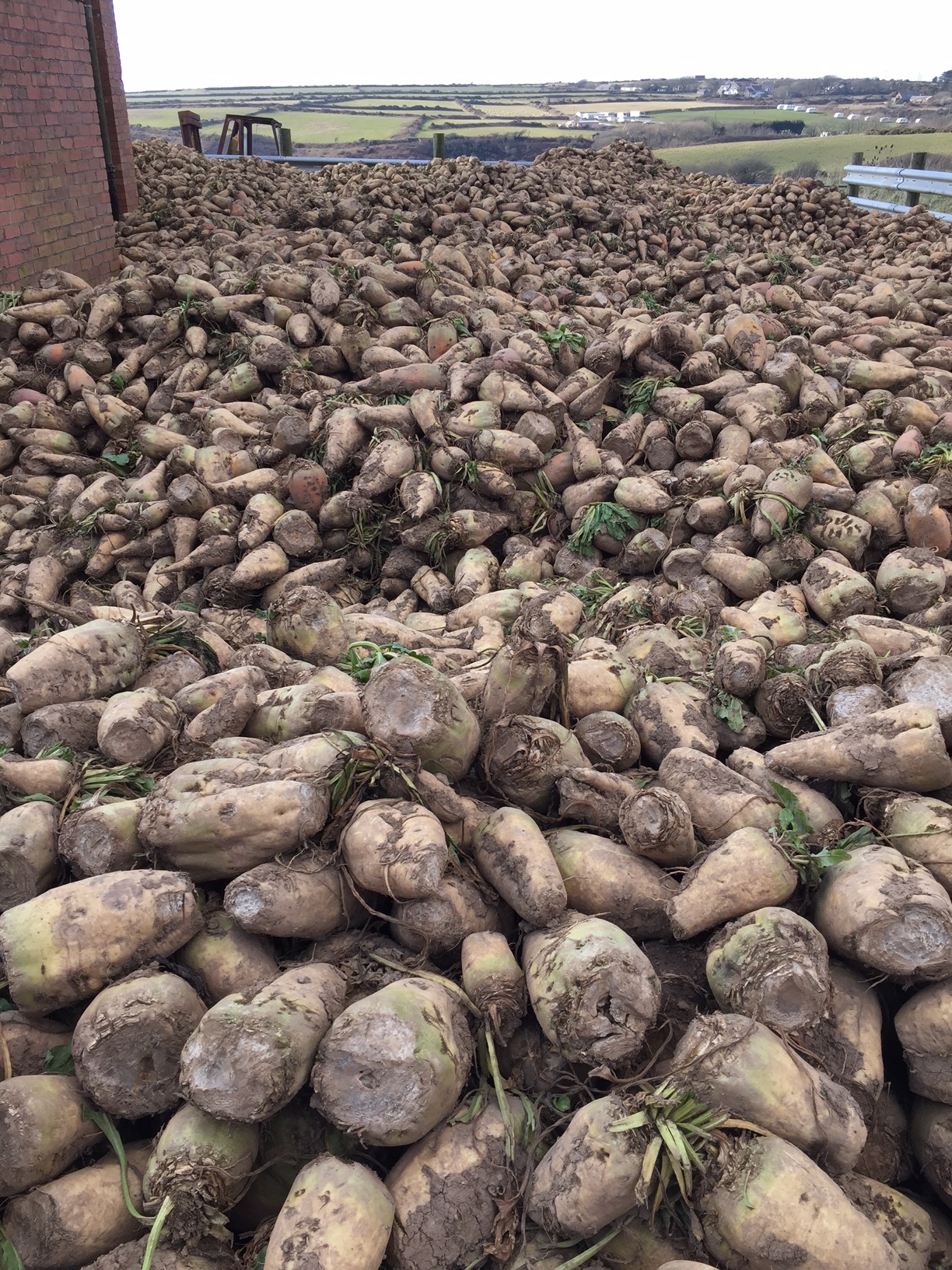Fodderbeet

A crop of fodder beet can thrive on a wide range of soils, but a light to medium, free draining field is ideal. A soil pH of 7 is the target and good accessibility is vital for heavy harvesting machinery.
Aim for firm, fine tilth with pre-Christmas ploughing. Keep moisture loss to a minimum in the spring. Monogerm seed has eliminated the need for labour intensive singling. However, allow for some field losses if seedbed conditions are poor. As a general guide, soil temperatures need to be at least 5°C before sowing. Early April is a typical drilling date in the south. Sowing earlier in cold conditions can lead to bolting. Delayed drilling leads to yield losses. Ensure that the seed is drilled to a depth of 2.5/3cm - use the deeper depth for dry seedbeds. A precision drill is essential.
This is a demanding crop in terms of nutrients. All the fertiliser, except the nitrogen, is best applied in the autumn. The nitrogen can be applied immediately after drilling. The use of slurry/ farmyard manure will be beneficial, as is the application of sodium on appropriate soil types. Trace elements (especially manganese and boron) are important to fodder beet.
Some farmers may be prepared to undertake inter-row cultivations, but good herbicide control is possible to control weeds. It is vitally important to control weeds as their presence can severely reduce yields. Weed beets are very undesirable and every effort must be made to eliminate them. Our seed is treated with both fungicide and insecticidal products to provide protection during the establishment phase. The crop can be attacked by several pests, including slugs and wireworms, as well as symphylids.
Although the crop continues to put on yield into the autumn, this has to be balanced against the potential problems associated with a late harvest. Some farmers have their own lifting equipment,
Fodder beet may be fed chopped or whole. Chopped beet should provide a better liveweight gain in beef animals. Feeding the roots at ground level can reduce the risk of choking. The roots have a high energy but low protein content and make a good substitute for grain in rations for dairy, beef, sheep, pigs and deer. Crops can also be strip-grazed in outwintering system.
Please call the office on 01437 781780 for further advice and to purchase the right variety of fodder beet for you.
